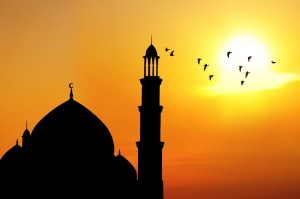The Battle Against Islamism is Personal

I can’t think of a better example of the complex internal struggle within nearly every Muslim community and family than that represented by the San Bernardino shooter and his family.
While one brother, Navy veteran Syed Raheel Farook, was awarded numerous medals of service (including the Global War on Terrorism Expeditionary Medal and the Global War on Terrorism Service Medal), the other, Syed Rizwan Farook, became a Jihadist married to a woman who pledged allegiance to ISIS.
My own journey away from religion was due in part to witnessing the radicalization of a close childhood friend, a friend who I had previously viewed as a mirror image of myself. The allure of jihadism drew in some of my extended family as well, and I have friends with family members convicted of terrorism-related offenses. I know of ex-Muslims in Bangladesh who are being targeted by Islamic extremists—and others whose family members were involved and convicted for those same murders.
Sadly, these stories aren’t exceptional or rare.
This ideological war is not one between the East and the West, even though many on the Islamist right and the Western right would like to frame it that way. Instead, it is a struggle for the soul of our people and our communities, be they Pakistani, Saudi, Bangladeshi, Somali, or otherwise. It is being fought between siblings, parents and their children, in homes, mosques and yes, even schools.
The school that may have radicalized the shooter’s wife has branches in the US from which there are also ex-Muslim graduates and former instructors who are recovering from the aftermath of religious indoctrination. Still worse, there are closeted ex-Muslims who have been forced to send their children to those same schools due to social pressure from family and community.
To be clear, this struggle is between those who believe that humanity can advance morally, between those who believe that all humanity is equal and deserving of equal rights and those who insist on religious supremacy, those who believe in free speech for all and those who insist on speech codes and blasphemy laws, those who have a secular vision and those who look to theocracies with longing, and between those wanting to educate and inspire us to a better future and those who insist on dragging the rest of the world to their deranged fantasies of a glorious past.
Just as there are those on the East that line up on both sides of this war, there are those in the West that similarly choose opposing sides. Far too many on the left, like the Goldsmiths Feminists Society, Goldsmiths LGBTQ+ Society, and the Yale Humanists do not understand the depth of this struggle and in their utter naiveté are essentializing those from the East, presuming religious expression as our “authentic identity,” and in effect picking the side of those yearning for the seventh century.
When picking sides we must be clear-eyed about the motivations and values driving this struggle. We have to acknowledge, once and for all, that commending Raheel’s choices in life and condemning Rizwan’s is not Islamophobic. We have to make clear that supporting the countless Muslim reformers who risk and lay down their lives to oppose the Islamist Right is not bigotry—there are values we will not tolerate, and ideals we must oppose.
